The need for teachers and parents to be well-read so they can provide essential supplementary education to children has become more pressing than ever before. EducationWorld asked an eclectic mix of educationists, teacher trainers and school principals across the country to recommend vacation reading lists for teachers and parents. Summiya Yasmeen reports
.gif) The two-month-long summer break beginning April for schools and colleges is not only a period of rest and recreation for children and youth, it also offers teachers and parents a great opportunity to catch up with their reading and education. Unfortunately the country’s 7 million teachers — especially 5.5 million primary school teachers — are notoriously ill-read. According to a dipstick survey cond-ucted by EducationWorld corres-pondents in Bangalore, Mumbai, Delhi and Chennai, 90 percent of teachers don’t read beyond prescribed subject texts. The situation is probably worse in other cities, towns and villages ill-served by public and institutional libraries and/or bookshops.
The two-month-long summer break beginning April for schools and colleges is not only a period of rest and recreation for children and youth, it also offers teachers and parents a great opportunity to catch up with their reading and education. Unfortunately the country’s 7 million teachers — especially 5.5 million primary school teachers — are notoriously ill-read. According to a dipstick survey cond-ucted by EducationWorld corres-pondents in Bangalore, Mumbai, Delhi and Chennai, 90 percent of teachers don’t read beyond prescribed subject texts. The situation is probably worse in other cities, towns and villages ill-served by public and institutional libraries and/or bookshops.
As the pressure to produce world-class graduates equipped to compete globally builds up, the socio-economic and extra-curricular knowledge deficit of India’s teachers is beginning to show up by way of poor learning outcomes and inadequate general knowledge of their students. Moreover given that K-12, college and even university syllab-uses are dictated by out-of-date burea-ucrats and sycophantic academics, the need for teachers and parents to be well-read so they can provide essential supplementary education to children has become more pressing than ever before.
“Regrettably, there’s pervasive aversion to continuous learning and inertia within India’s teachers’ community. Most of them seem to believe that acquaintance with indige-nous texts such as the Ramayana, Mahabharata and Hitopadesha is sufficient general reading. Although it’s true teachers are loaded with administrative work in addition to their teaching duties, the most important cause of their poor reading habits is that government and low-cost private schools don’t have any worthwhile libraries. Therefore building libraries is crucial to encouraging them to read. A mass library movement is urgently needed to foster a culture of reading and love of books within the teachers and parents communities because education doesn’t end in classrooms,” says Arvind Venkatadari, the Bangalore-based director of the Akshara Foundation’s library programme. Registered in 2000 by Rohini Nilekani, a major shareholder of the IT behemoth Infosys Technologies, the Akshara Foundation has established libraries in 1,400 government schools in Karnataka state.
While shortage of libraries is a compelling reason behind government and low-cost private school teachers’ poor supplementary reading habits (according to the Annual Status of Education Report 2010, published by NGO Pratham, 36.9 percent of rural schools don’t have libraries at all), teachers in mid and top-rung private schools complain that excessive pressure imposed by managements to deliver excellent board examination results leaves little time for supplementary or leisure reading. “Most private schools in urban India have libraries although they tend to be arbitrarily stocked. But teachers have little time to read because they are overworked and pre-occupied with correcting homework, answer scripts and monitoring students’ academic perfo-rmance. Unfortunately most school managements are excessively focused on teachers delivering good board exam results rather than well-rounded education to their students,” says a teacher in a CBSE-affiliated school in Delhi well-known for its excellent board exam results.
Against this backdrop, the duty of care to stimulate the spirit of enquiry and love of knowledge within children, and keep them well-informed about socio-political issues devolves upon parents. Educationists are unanimous that informed discussions and debates — teaching a “counter-curriculum” in the words of American educationist Sara Lawrence Lightfoot — is vitally necessary to transform and nurture children and teens into socially aware contributing citizens. But unfortunately like teachers — and perhaps for the same reasons — the majority of parents in India are also ill read.
Comments K.R. Maalathi, the Chennai-based chief executive of Auuro Educational Services, which conducts parenting workshops across the country: “I’ve conducted workshops attended by over 10,000 parents during the past six years. Regrettably most parents are ill-read and ignorant about contemporary child nurturance pract-ices and know little about societies they live in. Given the reality of high teacher-pupil ratios and excessive academic focus in schools, parents have to assume greater responsibility for children acquiring wider knowledge and skills to help them cope with life and its many challenges. Children learn best when parents involve them in discussions and debates at the dinner table. Being well-read and well-informed will not only earn parents their children’s respect and admiration, but will inspire children to do extra-curricular reading and develop lifelong love of reading.”
As pressure on India’s 1.30 million schools, 509 universities and 31,000 colleges to produce graduates who excel not just academically, but are knowledgeable problem solvers, intensifies in the new globalised world, it’s imperative for teachers and parents to develop the reading and learning habit. And with the summer vacation round the corner, long lazy afternoons are ideal to make good this lacuna. EducationWorld asked an eclectic mix of educationists, teacher trainers and school principals across the country to recommend a vacation reading list for teachers and parents. Check out their summer reading recommendations.
Gen. Ray's order
.gif) Lt. Gen (Retd) Arjun Ray, PVSM, VSM, is the celebrated Bangalore-based founder chief executive of the IBO (Geneva)-affiliated Indus International School (estb. 2003), ranked among the country’s top three international schools in the EducationWorld-C fore India’s Most Respected Schools Survey, 2010 (EW September). His summer reading list for parents and teachers:
Lt. Gen (Retd) Arjun Ray, PVSM, VSM, is the celebrated Bangalore-based founder chief executive of the IBO (Geneva)-affiliated Indus International School (estb. 2003), ranked among the country’s top three international schools in the EducationWorld-C fore India’s Most Respected Schools Survey, 2010 (EW September). His summer reading list for parents and teachers:
The Element — How Finding your Passion Changes Everything by Ken Robinson (Penguin)
A must-read for parents and teachers. Its message is that we need to discover and connect with our talents and passions and do what we are good at and enjoy doing. The author believes it’s essential for each one of us to find his/her ‘element’, not simply because it will make us more fulfilled, but because as the world evolves, the very future of our communities and institutions will depend on it.
A Whole New Mind — Why Right Brainers will Rule the World by Daniel H. Pink (Penguin)
A Whole New Mind is all about preparing children for an uncertain and radically different future. Pink challenges the economy and society built on traditional logical, linear and analytical pattern — hallmarks of the information age. The author argues that the future will belong to right brainers, those who visualise the “big picture”. Parents and teachers, who erroneously believe that left brain thinking is the key to children’s success, will benefit immensely from reading this book.
Emotional Intelligence by Daniel Goleman (Bantam)
This book posits that emotional intelligence (EI) is not decided at birth; parents and teachers can nurture it in children. EI — which includes self-awareness, self-confidence, empa-thy and other social skills — is crucial for success in the workplace and life. Complements Emotional Intelligence is Social Intelligence, also written by this author.
Nothing’s Impossible: Leadership Lessons from Inside and Outside the Classroom by Lorraine Monroe (Times Books)
An account of the success story of the Frederick Douglas Academy, a public school in Harlem, New York, promoted to provide high quality education to underprivileged children. The author’s Monroe doctrine is based on the belief that caring instructors, disciplined yet creative school environments, and refusal to accept mediocrity, can transform the lives of children regard-less of their disadvantaged socio-economic backgrounds. A must-read for teachers and school administrators.
Drive: The Surprising Truth about What Motivates Us by Daniel Pink (Riverhead Books)
Excellent material for teachers because it argues that when it comes to motivation strategies, the traditional carrot and stick approach of rewards and punishment is obsolete. According to Pink, the secret to high performance and satisfaction at work, school, and home, is the deeply ingrained human need to direct our own lives, learn and create new things, and succeed. Self-driven teachers can role model excell-ence, which is the outcome of passion.
Ashar's must-reads
.gif) Lina Ashar is founder-chairperson of Kangaroo Kids Education Ltd, a transnational corporate with pre-schools and K-12 institutions in 18 cities across India, Dubai and the Maldives. Her three must-read books for teachers and parents:
Lina Ashar is founder-chairperson of Kangaroo Kids Education Ltd, a transnational corporate with pre-schools and K-12 institutions in 18 cities across India, Dubai and the Maldives. Her three must-read books for teachers and parents:
A Whole New Mind: Why Right Brainers will Rule the World by Daniel Pink (Penguin)
Pink predicts that the new age about to dawn on us will be an era of conceptual creativity and imagination. As we enter this new age, we will need to evolve our educational and parenting philosophies to focus on developing children’s right brain which stimulates creativity, intuition and ingenuity.
The Biology of Belief by Dr. Bruce Lipton (Hay House Publishing)
A powerful book which explains the science behind the power of belief. It discusses ‘signal transduction science’ which acknowledges that the fate and behaviour of organisms is directly linked to their perception of the environment. In humans the habits, beliefs, and attitudes we download as children become ‘hard-wired’ as syntactic pathways in our subconscious minds. Once program-med into the subconscious mind, they control our biology for the rest of our lives, unless we can figure out a way to reprogramme them. This is a power-ful read as it will make every caregiver — parent or teacher — mindful of the messages they give children in explicit and implicit ways for downloading into their subconsciouses.
The Noticer by Andy Andrews (Thomas Nelson Publishers)
I have gifted over 600 copies of this book. The Noticer explains how we can change our emotions and consequently outcomes by shifting our perspective. It’s about changing the way you look at things so that the things you look at change. The difference between a stumbling block and stepping stone is in our perception. This book tells us why it’s important to believe in stories that enable and empower us rather than those that disable and discourage.
Professor’s list
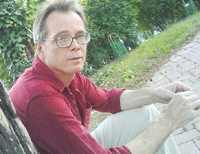 Jan Sjunnesson is a professor of education/teacher training at Stock-holm University, Sweden. A former school principal, Sjunnesson also worked briefly in India as associate director of the Delhi-based think-tank Centre for Civil Society. His reading list for teachers and parents.
Jan Sjunnesson is a professor of education/teacher training at Stock-holm University, Sweden. A former school principal, Sjunnesson also worked briefly in India as associate director of the Delhi-based think-tank Centre for Civil Society. His reading list for teachers and parents.
Homo Academicus by Pierre Bourdieu (Stanford University Press)
Why do some professions rise and some shrink? What is symbolic capital versus economic capital and why does it matter to schools, teachers and higher educa-tion? This famous French sociologist brilliantly tracks academic institutions in his country, but also propounds a theory of power structures relevant to schools and higher education institutions worldwide.
Early Childhood Education — Post-colonial Theory and Teaching Practices in India by Amita Gupta (Bonus Publisher)
This book balances the traditional Indian way of raising children with modern Western ideas of early child-hood education. The author effectively compares American pre-schools with Indian play schools.
The Beautiful Tree by James Tooley (Penguin India)
Small private slum schools outmaster government schools in India, China and Africa. Mass education should not only be about government schools but should also encourage low-cost budget schools. Tooley explains why.
Becoming Indian by Pavan K. Varma (Penguin)
It effectively highlights the obsession of middle class Indian families with Anglo-European culture while warning against hyper nationalism.
Freedom by Jonathan Franzen (HarperCollins)
An engaging novel about a family and a dysfunctional marriage. The family saga provides trenchant insights into contemporary American life. It also suggests lifestyles that could evolve elsewhere.
Ronia, the Robber’s Daughter by Astrid Lindgren (Raben & Sjogren)
This Swedish author has written so many fantastic books, it’s impossible to name them all. But Ronia, the Robber’s Daughter is her best. Ronia is born into a clan of thieves, yet grows up surrounded by love. But as she grows up she will discover that she’s adrift in a world threatened from the outside.
Mani’s menu
.gif) Mallika Mani is an education alumna of Kerala, Osmania and Sheffield (UK) universities and director of the Srikriti Teacher Education Centre (STEC), Chennai. Her list of summer reading:
Mallika Mani is an education alumna of Kerala, Osmania and Sheffield (UK) universities and director of the Srikriti Teacher Education Centre (STEC), Chennai. Her list of summer reading:
Parents are Teachers too by Claudia Jones (Williamson Publishing)
Teachers are often annoyed by enthusiastic parents who drop by at school to complain or solicit advice. Jones reassures us that parents are teachers too, and perhaps very good ones. This book is a ready reckoner for parents willing to spend time with their children in the early years. It is replete with easy-to-do practical activities. My copy which I picked up at a book fair is frayed and sports blue highlights all over! It is not a one time beginning-to-end read. It’s a book you will return to as you grow with your child.
Parenting by Heart by Dr. Ron Taffel with Melinda Blau (Bonus Publisher)
As the preface says “this book is about challenging the myths of modern parenting so that you can learn to connect with your kids in ways that help them grow into healthy adults”. Written by a doctor who has conducted hundreds of parenting workshops, it’s all about enabling parents to take charge. Though I found some chapters a bit too oversimplified and trite (it’s difficult to follow a Spockian formula to raise children!), it’s thought provoking.
Outliers: The Story of Success by Malcolm Gladwell (Penguin)
This book tops my list of must-reads for teachers! Gladwell argues that our understanding of success is all wrong. He contends that success is the out-come of the twists and turns in people’s lives and the cultures that nurture them. Most important — the way they spend their time! A compulsory read for people in education because it has all the answers on how to identify and develop high potential learners.
Nine Lives by William Dalrymple (Bloomsbury)
A mesmerising travelogue in which the author discovers India through nine poignant biographical narratives. From the heart-wrenching story of a Jain nun to that of a temple dancer in Kerala, it takes readers on an enchanting uncharted journey of a hidden India. It will certainly enrich teachers.
Reflecting on Teaching: Today and Tomorrow edited by Paul Beedle & Bob Burkill (Continuum International Publishing)
All narratives in this anthology have been contributed by innovative Indian teachers — including two from STEC — offering examples of contemporary best practices in Indian classrooms. It highlights a diversity of pedagogies as practised in differing contexts, and explores key themes that should inspire teachers to reflect and innovate.
Malhotra’s message
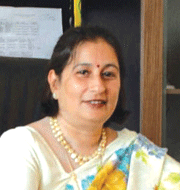 Dhriti Malhotra is the former principal of Ryan International, Vasant Kunj and Scottish High International School, Gurgaon and currently of Manav Rachna International School, Gurgaon.
Dhriti Malhotra is the former principal of Ryan International, Vasant Kunj and Scottish High International School, Gurgaon and currently of Manav Rachna International School, Gurgaon.
Think! Before it’s too Late by Edward De Bono (Random House)
In the teachers community where there is pervasive prevalence of the type of personality which believes it ‘knows it all’, this is a very useful book.
Teaching Outside the Box: How to Grab your Students by their Brains by Lou Anne Johnson (Jossey-Bass)
Every teacher must have a toolkit of time-tested pedagogies which can help them manage all types of students. This is a unique resource book which also acknowledges the importance of teach-ers’ personal teaching styles, attitudes and beliefs. Strongly recommended.
I Remember my Teacher by David Shribman (Andrews McMeel)
Perfect feel-good and companion book for teachers. Former students reminisce with humour, pride and gratitude about their best teachers.
365 Ways to Love your Child by Caryl Waller Krueger (Abingdon Press)
Written with verve, and required read-ing for parents to help them strengthen their bond with children by creating open and loving home environments. Some of the nuggets of wisdom in this manual: “It is better to provide children with encouragement than evaluation”; “When you say hurtful things to your child, you not only hurt her, you teach her to be hurtful” and “Don’t try to win arguments”.
Children Learn What They Live: Parenting to Inspire Values by Dorothy Law Nolte and Rachel Harris (Workman Publishing)
For readers unfamiliar with Dorothy Law Nolte’s 1954 classic poem, it is included in the preface of the book together with an introduction from Nolte.
The Speed of Trust by Stephen Covey (Free Press)
A 380-page roadmap on building and infusing trust in yourself and others around you — in personal relationships, colleagues, teams, families, and society.
Dean Venkat’s list
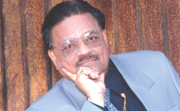 V. Venkatachalam is dean, Vel’s Group of Schools, Chennai and has served as an advisor to NCERT and CBSE on syllabus and examination reforms. His reading list for teachers and parents:
V. Venkatachalam is dean, Vel’s Group of Schools, Chennai and has served as an advisor to NCERT and CBSE on syllabus and examination reforms. His reading list for teachers and parents:
Reflecting on Teaching: Today and Tomorrow edited by Paul Beedle and Bob Burkill (Continuum International Publishing)
This book will interest all involved in teaching or teacher training for the insights and useful ideas on teaching principles and practices it offers. The contributors are Indian teachers who have documented their personal experiences of group work and activity-based learning.
A Pedagogue’s Romance by Krishna Kumar (Oxford University Press)
A collection of the author’s essays, it’s a guide for working with children. The author — professor of education at Delhi University and former director of NCERT — discusses various reasons why education in India has become synonymous with social exclusion, and what can be done to correct it. A must-read for teachers who want to go beyond textbooks and syllabuses to dispense real learning to students.
Awaken the Giant Within by Anthony Robbins (Harper Collins)
An inspiring read for teachers suggesting strategies for controlling your emotions, relationships, finances and mastering life. It educates teachers on how to use their powers to mould students into good citizens.
Your Child can be a Genius by Aruna Raghavan (Tulika Publishers)
Aruna Raghavan advises parents on how to be their children’s best teachers. The book discusses alternative, including home schooling and how thoughtful parenting can infuse joy into a growing child. A great read for parents as it emphasises the effectiveness of self-learning.
Celebrating Silence by H. H. Sri Sri Ravi Shankar (Jaico Publishing)
A collection of discourses (1995-2000) delivered by Sri Sri Ravishankar in which he discusses subjects ranging from doubt and fear to love and dispassion. It provides parents in particular insights into dealing with the many upheavals in children’s lives as they grow into adulthood.
Advani’s suggestions
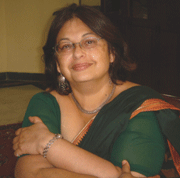 Dr. Shalini Advani is director of the Pathways World School, Noida. A former principal of the British School, Delhi and director of Learn Today, Dr. Advani has also authored books including Growing up in the Nuclear Shadow (Orient Longman) and Educating the National Imagination (OUP). Her summer reading list.
Dr. Shalini Advani is director of the Pathways World School, Noida. A former principal of the British School, Delhi and director of Learn Today, Dr. Advani has also authored books including Growing up in the Nuclear Shadow (Orient Longman) and Educating the National Imagination (OUP). Her summer reading list.
Battle Hymn of the Tiger Mother by Amy Chua (Bloomsbury)
A true story, this global best-seller explores a parent’s commitment to traditional strict parenting and the difficulties which arise from tough love. For those who struggle with bridging the generation gap this is an entertaining and useful book.
Emotional Intelligence: Why It Can Matter More Than IQ by Daniel Goleman (Bantam)
A classic on the values we need to inspire as educators and parents to enable children to succeed and be happy.
Googled: The End of the World as we Know it by Ken Auletta (Penguin)
An account of the phenomenal rise of the Google empire, it tells the story of how it evolved and crashed into traditional media businesses — from newspapers to books, television, movies, telephones, and advertising. A must-read for parents looking to understand how much our world — and business — has changed.
The First Days of School: How to be an Effective Teacher by Harry Wong and Rosemary Wong (Harry K. Wong Publications)
A very useful guide to learning and understanding the practical skills required of a teacher, including discipline and classroom systems.
Classroom Instruction that Works by Robert Marzano (Association for Supervision and Curriculum Development (ASCD))
Living up to its title, this book is replete with excellent suggestions on develop-ing creative classroom strategies including effective group work, assessment and promoting thoughtful learning.
The Differentiated Classroom: Responding to the Needs of all Learners by Carol Ann Tomlinson (ASCD)
All teachers struggle with the problem of differential learning abilities — from advanced to slow — of students in their classrooms. This book offers practical strategies and pedagogies to adapt content for learners of differing abilities.
Pat's recommendations
 Patricia Koh is the founder-director of Pat’s Schoolhouse, Singapore, one of the island nation’s premier pre-schools, and senior research fellow, Knowledge Universe Global. Former head of the National Institute of Education’s early childhood department, Koh has played a leading role in raising standards of pre-school education in Singapore.
Patricia Koh is the founder-director of Pat’s Schoolhouse, Singapore, one of the island nation’s premier pre-schools, and senior research fellow, Knowledge Universe Global. Former head of the National Institute of Education’s early childhood department, Koh has played a leading role in raising standards of pre-school education in Singapore.
Dibs in Search of Self by Virginia Axline (Ballantine Books)
The Mind Tree by Tito Rajarshi Mukhopadhyay (Arcade Publishing)
These two acute studies will help parents see their children differently. Dibs and Tito are both special in their own way but often misunderstood by the world. Five-year-old Dibs won’t talk or play. This is the true story of how Virginia Axline, a gifted therapist and pioneer of play therapy, brought him out of his trapped self.
At age three, Tito was diagnosed with severe autism. Instead of giving up hope, Tito’s mother persevered to help him read and write English. Nurtured sensitively, Tito became a successful author. By age 11, he had written profound prose and poetry.
The Mommy Trap by Julie Shields (Capital Books)
This book is an inspirational read for all mothers who feel trapped and are trying to find a way to enjoy motherhood.
The Miracle Worker by William Gibson (Pocket)
The story of how teacher Annie Sullivan changed the future of the blind prodigy Helen Keller through dedication and understanding. This book will inspire teachers to believe and understand that they can never tell where their influence ends. “The most important day I remember in all my life is the one on which my teacher, Anne Mansfield Sullivan, came to me,” wrote Keller in her autobiography.
Totto Chan by Tetsuko Kuroyanagi (Kodansha International)
Teachers will enjoy following Totto Chan’s progress in an unusual school with old railroad cars for classrooms. They will learn to expect the unexpected from children and find ways to work positively with them.
3 Idiots — Story by Rajkumar Hirani and Abhijit Joshi
Teachers who read this book will understand that their role is not to ‘teach’ but help children follow their dreams.
Anita's advice
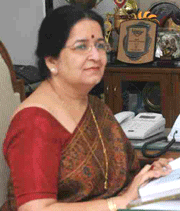 Anita Makkar is principal of the DAV School, Gurgaon.
Anita Makkar is principal of the DAV School, Gurgaon.
Schools that Learn by Peter Senge (Nicholas Brealey)
This book stresses the importance of lifelong learning for teachers, and of shared vision for communities of learners.
Dance of Change by Peter Senge (Double Day)
A realistic and thorough guide on how to engineer large-scale organisational change to stay ahead. Highly recommended for education leaders.
Good to Great by Jim Collins (Harper Collins)
A motivational read for educators, urging them not to rest content with being good but pursue excellence.
Your Child can Think like a Genius by Bernadette Tynan (Harper Collins)
Sometimes well-meaning parents end up blighting the future of their children. This is a helpful parent resource to unlock the genius hidden within every child.
Dibs in Search of Self by Virginia M. Axline (Ballantine Books)
Authoritative advice for parents ready to trade off emotional development of children for intellectual achievement. It highlights the virtue of holistic development.
Jonathan Livingston Seagull by Richard Bach and Russell Munson (Macmillan)
A short read with moral and narrative power for everyone especially parents, to reflect on life and help children become thoughtful and considerate adults.
List for young parents & pre-school teachers
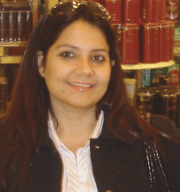 Divya Johar Bawa is founder of Kinder Plume, a playschool in Delhi and a children’s books author (The Adventures of Chiya the Yellow Birdy). Her recommendations for young parents and pre-school teachers.
Divya Johar Bawa is founder of Kinder Plume, a playschool in Delhi and a children’s books author (The Adventures of Chiya the Yellow Birdy). Her recommendations for young parents and pre-school teachers.
The Super Sandwich by Catherine Vase (Campbell Books)
This is a lovely touch-and-feel book about making a sandwich! Cook with your child after reading this book — a great way to bond and have fun.
Learning Fundamentals: Early Ages 0-3 by Rose Dryden (Chrysalis Children’s Books)
This book provides useful advice, especially to first-time parents. It is divided into periods from birth to the third year and helps young parents pick up simple and basic child nurturance tips and advice.
Play and Learn by Dorothy Einon (Octopus Publishing)
A fabulous book with loads of activities for children up to six years of age. It has imaginative games and stimulating activities which can be used in the classroom by teachers to improve vocabulary and maths skills. It has an interesting section on music too.
Brain Games for Preschoolers by Dorothy Einon (Hamlyn Books)
A treasure trove of enjoyable activities for two-five year olds. Teachers can add value to their curriculum by implementing these simple yet effective activities.
Things for Girls to Make and Do (Usborne Books)
Contrary to the title, there are some creative art activities in this book in which boys and girls will love to engage. Beautiful illustrations and fun activities.
With Hemalatha Raghupathi (Chennai); Autar Nehru & Payal Mahajan (Delhi)